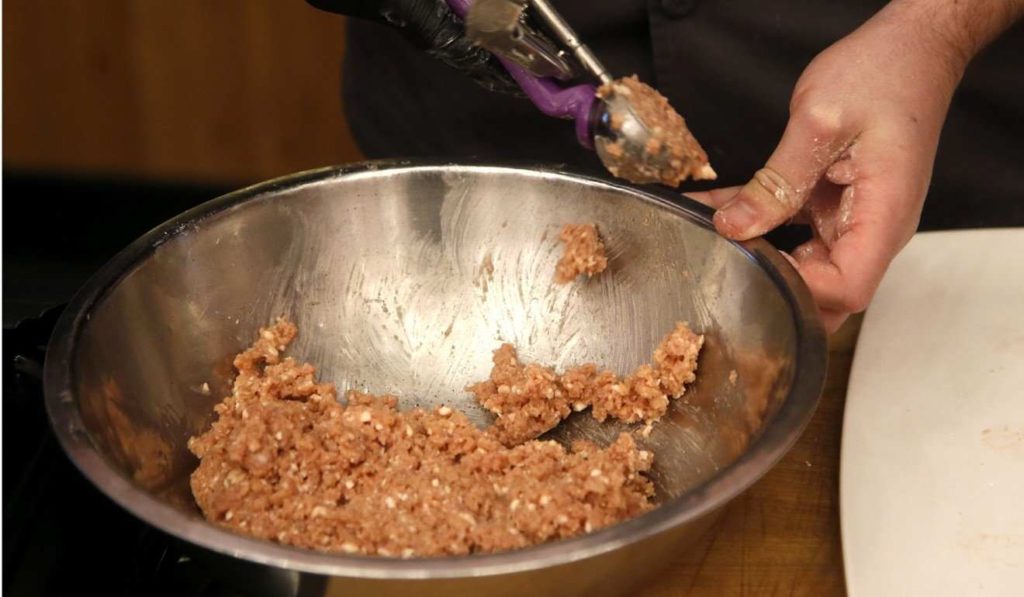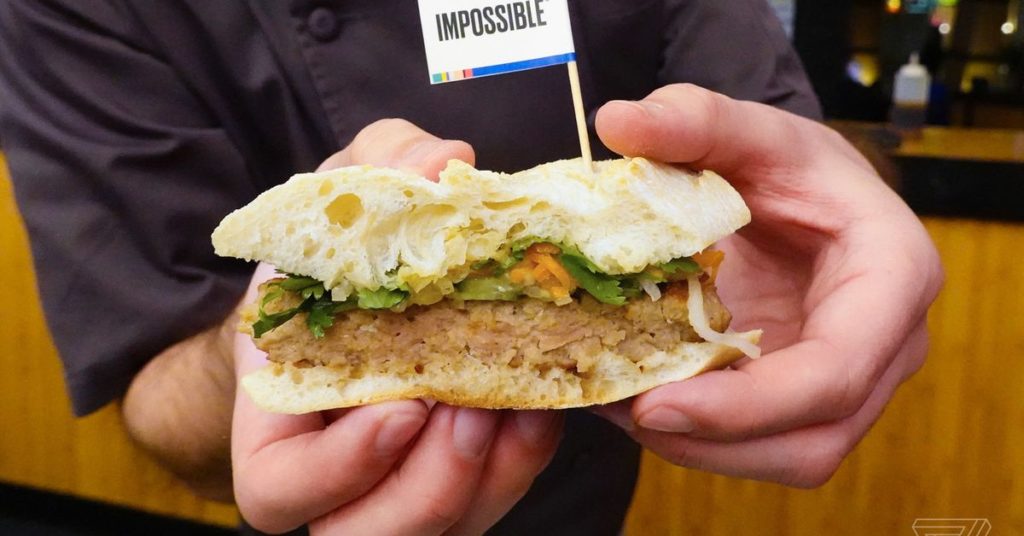The company behind the Impossible Burger is hoping to gain halal certification for its new products Impossible Pork and Impossible Sausage
Impossible Foods says its pork creation, which is gluten free and designed for halal and kosher certification, can be used as a substitute for ground pork in any recipe. It doesn’t contain any animal hormones or antibiotics, and the company says it offers the same “savory neutrality” as ground meat from pigs
Like the Impossible Burger, the main protein in Impossible Pork is soy, with sunflower and coconut oils serving as fat sources. The other ingredients contain binders and flavorings including heme, which according to Impossible Foods is the molecule that gives beef that familiar meaty taste and smell when cooked.
Pat Brown, the CEO of the company, which debuted the two new products in the United States this week, has said the products were not specifically designed to target people with religious objections, but that seeking halal certification was “important to us”. The two products are made entirely from plants and contain no animal hormones.
Still, Impossible Foods sees this as an opportunity for people to try something they might not get to taste otherwise.

Impossible Foods estimates that about 2.5 billion people worldwide refrain from pork and pork-derived products based on the religious practices of Muslims , Hindus, Jews, and some Christian sects.
The company’s senior flavour scientist Laura Kliman said everyone could enjoy Impossible Pork “without compromise to deliciousness, ethics or Earth”.
It’s as yet unclear whether the region’s Islamic authorities will clear the products as suitable for Muslim consumption. While the Impossible Burger received its halal certification from the Islamic Food and Nutrition Council of America in December of the same year, kosher certification from the Union of Orthodox Jewish Congregations of America in May 2018,neither of the new offerings have been certified in the US.
Azmi Abdul Samad, chief executive of HalalHub Consultants, who helps restaurants and food producers get halal certification in Singapore, said the name was off-putting for Muslim consumers and would probably make it hard for the manufacturer to get halal certification in Southeast Asia.
“You can call it Impossible whatever meat, but not a name associated with pigs and pork,” he said. “There is a certain requirement with regards to naming. Jakim [Malaysia’s Department of Islamic Development] wouldn’t even let you use the word ham even if it’s chicken ham, and Malaysia doesn’t allow the word ham in halal restaurant,” he said.
Muslims are forbidden to consume alcoholic drinks and pork. So to me, anything that resembles these two items is best avoided. It is the same with some Hindus who are vegetarian – they do not eat mock meat.











